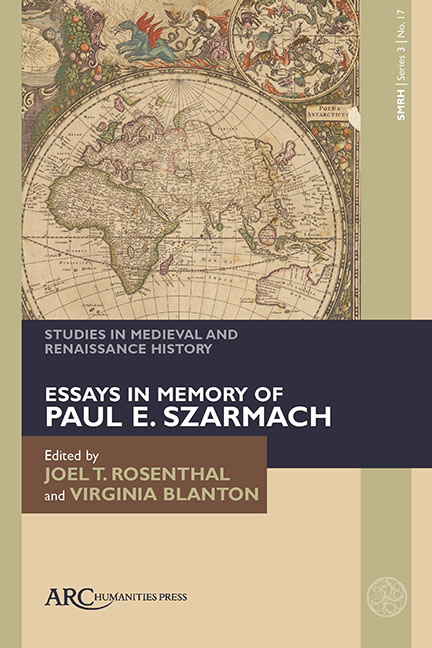Book contents
- Frontmatter
- Contents
- List of Illustrations
- Introduction
- Memories of Viking Age Cultural Contact: England in the Íslendingasögur
- Expressions of Cultural Disability: Navigating (Non)Normativity in the Hebrew–Italian Melekh Artus (King Artus)
- “All the rancour and enmity between us”. The War Between Richard, Earl Marshal, and King Henry III: Its Origins and Resolution
- Royal Consumption and Gifts of Deer in Thirteenth-Century England
- Travers and Trappe in the Palace of Pandarus: A Note
- Benedictine Devotion to England’s Saints: Thomas de la Mare, John of Tynemouth, and the Sanctilogium in Cotton Tiberius E. i
- The Rise of Admission by Apprenticeship Among the Freemen of Norwich, 1365–1415
- Nuns on the Run, or the “Sturdy and Wilful Dames” of Syon Abbey and their Disobedience to the Tudor State ca. 1530–1600
- Taking the Tour: Heritage Management in A Connecticut Yankee in King Arthur’s Court
Royal Consumption and Gifts of Deer in Thirteenth-Century England
Published online by Cambridge University Press: 13 February 2024
- Frontmatter
- Contents
- List of Illustrations
- Introduction
- Memories of Viking Age Cultural Contact: England in the Íslendingasögur
- Expressions of Cultural Disability: Navigating (Non)Normativity in the Hebrew–Italian Melekh Artus (King Artus)
- “All the rancour and enmity between us”. The War Between Richard, Earl Marshal, and King Henry III: Its Origins and Resolution
- Royal Consumption and Gifts of Deer in Thirteenth-Century England
- Travers and Trappe in the Palace of Pandarus: A Note
- Benedictine Devotion to England’s Saints: Thomas de la Mare, John of Tynemouth, and the Sanctilogium in Cotton Tiberius E. i
- The Rise of Admission by Apprenticeship Among the Freemen of Norwich, 1365–1415
- Nuns on the Run, or the “Sturdy and Wilful Dames” of Syon Abbey and their Disobedience to the Tudor State ca. 1530–1600
- Taking the Tour: Heritage Management in A Connecticut Yankee in King Arthur’s Court
Summary
DEER WERE AMONG the most prized animals hunted in medieval Europe. Contemporary hunting treatises described the rituals of the deer hunt and the chase was celebrated in both literature and in art.1 Deer were protected and preserved, served at important feasts, and given as royal gifts. This chapter will concern itself with how deer were used by the thirteenth-century English kings for food and as gifts. The main sources for this subject are the English public records. Among the problems in analyzing them are missing records, changes in what was recorded, and undercounting. Many of the records for King John's reign were lost when part of his baggage train was caught in a tidal estuary. The Close Rolls for 23 Henry III (1238–1239) are missing and a number of Edward I's Wardrobe Books have not survived. In all three reigns there are years in which there were no records of deer ordered. In both John and Edward's reigns payments were made to huntsmen for their wages and the expenses of their dogs, but what was hunted and where were seldom recorded. In Henry's reign the numbers and types of dog were generally omitted. In all three reigns there were instances of hunters being sent to hunt deer without quantities or gender stipulated. Clearly the totals of recorded deer are a good deal less than the number actually taken or given as gifts. Nevertheless surviving material is sufficient to indicate general trends, identify huntsmen, note who received royal gifts, and the like.
William I established the framework within which deer hunting operated in medieval England. William, it is said, “loved the stags dearly as though he had been their father.” To enhance his sport William brought Norman forest law and forest courts to England. The Anglo-Saxon kings had had their own hunting preserves. William expanded these greatly and made them subject to severe restrictions to preserve game and to reserve it for his own pursuit. The Anglo-Saxon Chronicle recorded:
He set apart a vast deer preserve and imposed laws concerning it.
Whoever slew a hart or hind
Was to be blinded.
- Type
- Chapter
- Information
- Studies in Medieval and Renaissance HistoryEssays in Memory of Paul E. Szarmach, pp. 63 - 84Publisher: Amsterdam University PressPrint publication year: 2023

